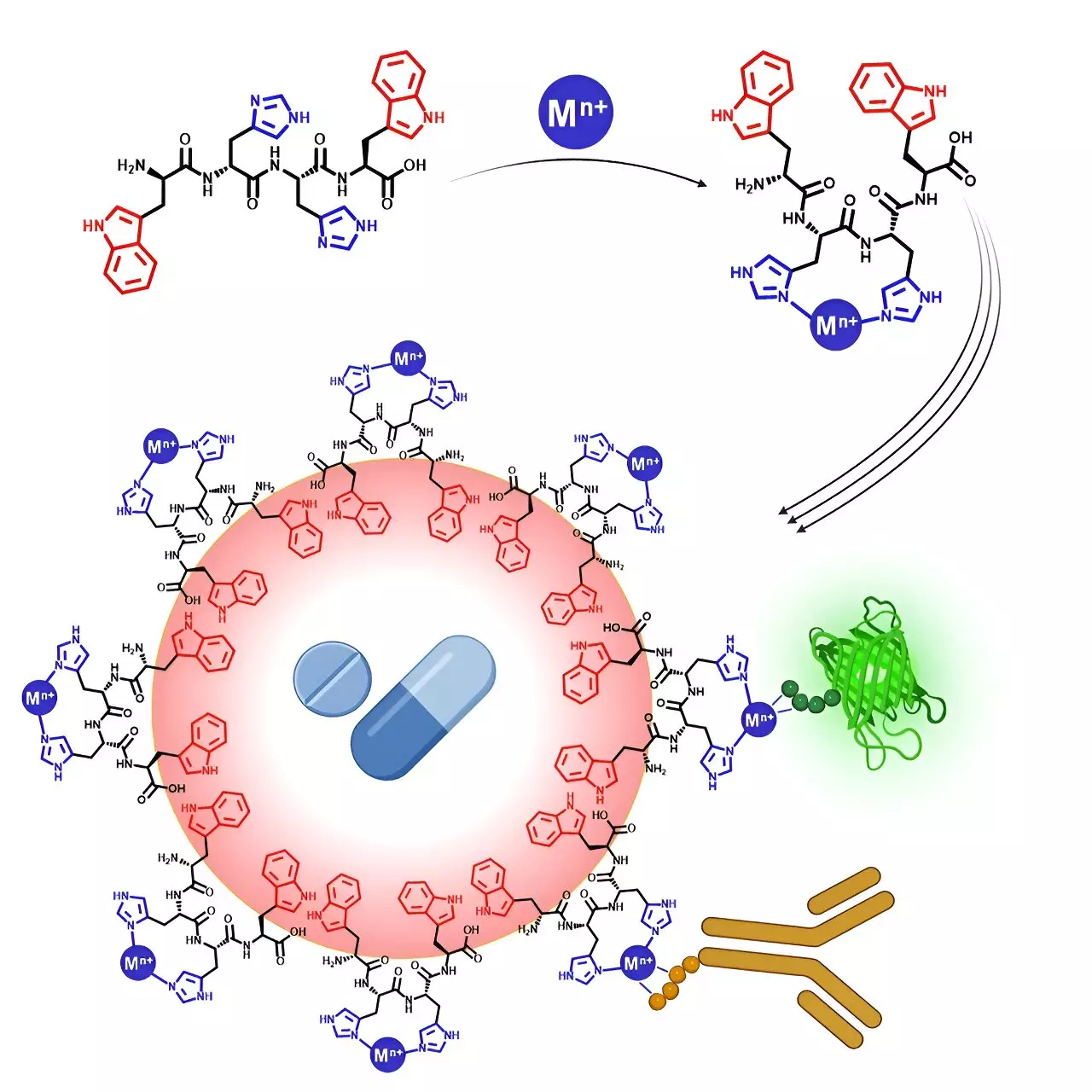A groundbreaking study led by Prof. Meital Reches of the Hebrew University has introduced a new drug delivery system that could potentially revolutionize the field. This innovative approach, centered on switchable peptide-stabilized emulsions, has the capability to transport both water-soluble and water-insoluble compounds within a single carrier. This breakthrough overcomes previous limitations in conventional drug delivery methods, opening up new possibilities for the field.
The key to this innovative drug delivery system lies in the unique peptide developed by Prof. Reches’ team. Composed of only four amino acids, this peptide has the remarkable ability to alter its shape upon binding specific metal ions. This transformation allows the peptide to switch from being hydrophilic to amphiphilic, enabling it to stabilize emulsions containing both water-insoluble and water-soluble compounds. In essence, this peptide can adjust its form to adhere to both water and fat, maintaining the stability of the drug mixture.
To understand the mechanisms behind these peptide-stabilized emulsions, researchers employed sophisticated techniques such as spectroscopy, NMR, and molecular dynamics. Their investigations revealed that the stability of these emulsions is due to the bonds between histidine and metal ions, which can be reversible under specific conditions like low pH environments found in tumor cells. This unique feature allows for targeted drug delivery, releasing drugs precisely where needed.
Early trials involving paclitaxel-loaded emulsions have shown promising results, demonstrating significant efficacy against cancer cells. Furthermore, this versatile drug delivery system offers more than just the transport of drugs. It can be customized with various features, leading to potential novel applications and benefits in the future of medicine. With its ability to transport both water-soluble and water-insoluble compounds, this innovative system opens up new possibilities in drug delivery that were previously limited by conventional methods.
The development of peptide-stabilized emulsions represents a significant advancement in drug delivery technology. The ability to simultaneously transport different types of compounds within a single carrier has the potential to transform the way drugs are administered and distributed. With further research and development, this innovative system could pave the way for more effective and targeted drug delivery with fewer limitations than traditional methods.



Leave a Reply